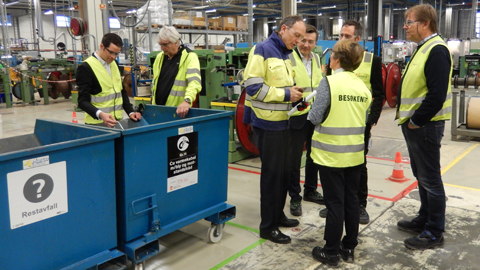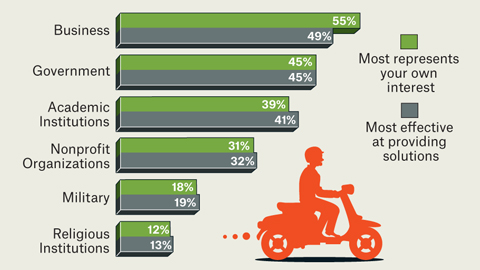Arnaud Poupart-Lafarge, CEO of Nexans, says his 26,000 employees are a larger priority than shareholders. Zaina Jabur reports.
A Brunswick Insight survey shows that people around the world place greater hope in business than in government. That doesn’t surprise Arnaud Poupart-Lafarge, Chief Executive Officer of Nexans, one of the world’s largest power, telecom and fiber-optic cable manufacturers.
“There is not enough motion in public life,” he says at the start of a conversation in his office at Nexans headquarters in Paris on a sunny spring afternoon. Government work has become less glamorous and rewarding, and the brightest minds have been drawn to careers in the private sector. Bureaucratic systems allow for little change and innovation. And as the keenest talents gravitate to the private sector, societal expectations turn there as well.
On paper, Poupart-Lafarge’s profile conjures images of l’ancien régime. A former executive with ArcelorMittal, he took the helm at Nexans in 2014, having previously served as COO. Under his tenure, the company has gone from an operating loss to a healthy profit, with its stock price rising 20 percent over two years.
Standing well over six feet tall, he might be mistaken for a tough, old-school businessman. But Poupart-Lafarge represents a new breed of leader, priding himself on his conscientious and hands-on approach to management. A thoughtful soul who keeps bees in order to do his part to protect the environment. Poupart-Lafarge says he doesn’t want to be “the CEO who doesn’t know what’s going on,” but the one who connects with employees all the way to those working the factory floors, whom he regularly visits.
Poupart-Lafarge strongly believes that the influence of business has overtaken that of governments because of its superior ability to attract talent and provide solutions to societal problems.


